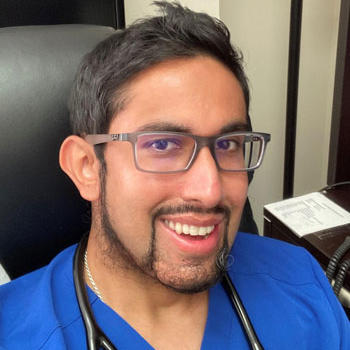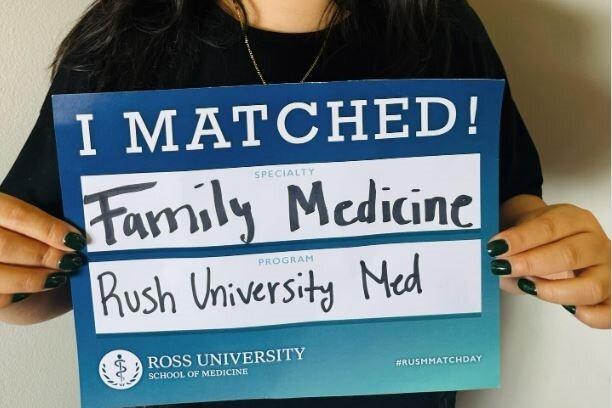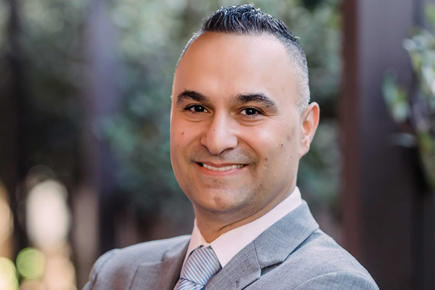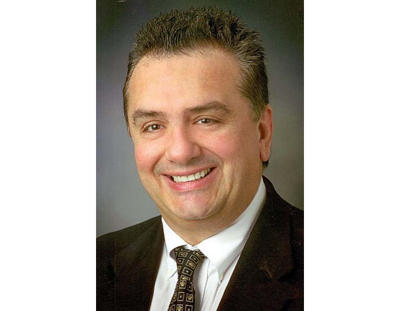In the vortex of COVID-19 since it slammed Texas in late June, Ross University School of Medicine (RUSM) alum and internal medicine hospitalist Hussain Malbari, MD, witnessed countless patients lose the battle against the relentless virus. In July, he became a sub-investigator for clinical research trials — completing the healthcare circle as a human logistics chain — following the patient from hospital entry until, hopefully soon, a cure.
“Seeing how sick patients got and how many died even though we did everything under the sun, that’s what motivated me to help on the back end. I am ensuring the safety of the patients and the integrity of the data so we can get a vaccine to market and prevent all this loss.”
Serving as a clinical research coordinator before medical school, Malbari is now on a 35-member research team that is recruiting patients for COVID-19 clinical trials. The team is currently working with three pharmaceutical companies, each targeting a different audience:
- High-risk patients with varying pre-existing conditions such as heart disease and diabetes as well as healthcare workers who are submerged in a COVID environment every day
- Older patients without medical conditions
- Adults who aren’t necessarily high risk, and may or may not have pre-existing medical conditions
Outsmarting the Virus
The companies provide different vaccine options — one includes a less-potent, “heat killed” version of the virus that allows the immune system to mount a response but won’t be super infectious. The other “gives your body a code that can recognize the virus; it’s introduced as a foe, allowing your immune system to recognize the shape and attack it.”
Trial volunteers are usually given two doses of the vaccine and observed for 18-24 months, a timeframe that will not lessen despite political propaganda. “There are no shortcuts in a clinical trial. Patient safety is the most important thing and the FDA will shut it down if it’s unsafe or dangerous. You can’t rush a vaccine.”
After meeting the prescreen qualifications, trial volunteers learn the benefits and risks and are told upfront that they may receive a placebo. “We’re seeing a steady recruitment of patients because they understand the importance and they want to help.” Mirroring his hospital job, Malbari follows each volunteer through the length of the trial — conducting exams and monitoring physical symptoms.
So Far, So Good
“Most people have had mild symptoms — fever, headache, body aches — nothing too severe,” said Malbari, who does not know which patients have been given the vaccine. “We’re blind investigators, which is one of the characteristics of a good clinical trial. We treat the patients without any bias one way or the other.”
In his third year at RUSM, the tennis player found his calling in internal medicine. “I had really upstanding attendings; I wanted to emulate their bedside manner. I loved the variety and being that first line of contact with the patient.” Though the pandemic lessened the number of patients entering Malbari’s hospital for non-COVID infections, he remains committed to the job while staying cautious about bringing the virus home.
“I didn’t go near my family because I was seeing COVID-positive patients 100% of the time at certain points, but I never hesitated when treating a patient because that’s my job and what I’ve trained for. A lot of healthcare workers want to go back to life before all of this. They know a vaccine isn’t going to take off and go to market magically. So, like me, they’re doing whatever they can to be part of the solution to get us there.”
Appreciative and Thankful
We appreciate your commitment to the continued well-being of our RUSM community and support during this unprecedented time.




